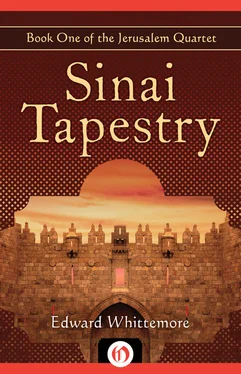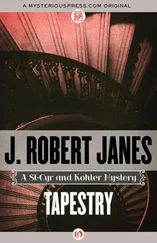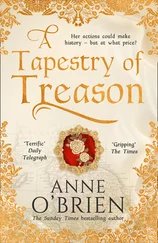Why did they keep returning to him? To tell him what?
An Englishman, a Jew, an Arab. His father and his grandfather relentlessly striding on, patiently going nowhere, his land and his home and heritage.
The vision burst upon him. A homeland for all the peoples of his heritage. One nation embracing Arabs and Christians and Jews. A new world and the Fertile Crescent of antiquity reborn in the new century, one great nation stretching majestically from the Nile through Arabia and Palestine and Syria to the foothills of Anatolia, watered by the Jordan and the Tigris and the Euphrates as well, by Galilee, a vast nation honoring all of its three and twelve and forty thousand prophets, a splendid nation where the legendary cities would be raised to flourish once more, Memphis of Menes and Ecbatana of Media and Sidon and Alep of the Hittites, Kish and Lagash of Sumer and Zoar of the Edomites, Akkad of Sargon and Tyre of the purple dye and Acre of the Crusaders, Petra of the Nabataeans and Ctesiphon of the Sassanids and Basra of the Abbasids, sublime Jerusalem and the equally sublime Baghdad of the Thousand and One Nights.
Stern was delirious, the vision was overwhelming, far grander than the promise he had made to his mother as a child. He sat down at his desk and began scribbling feverishly, and when he emerged two weeks later he had not only conjured up the memories of a thousand and one ancient tribes and civilizations and fused them together, he had also written the basic laws for the new nation and designed its flag, sketched some of its impressive public buildings and considered its universities and theaters, pondered its national anthem and listed the components of its constitution.
At the age of twenty-one he had arrived at his plan for life.
Quickly then he packed his bags and left Paris. Having decided who he was, nothing remained but to become that man and work toward the common bonds that perhaps had existed in his homeland three thousand years ago, not since.
This new promise was solemn and certain and he knew he would never break it, not even if it turned in time to break him.
From the soft green heights of Galilee, rich in gentle fields of grain and kindly memories, a promised stream plunging down and down.
STERN DROVE BACK TO the Middle East in a ten-horsepower French automobile, after being trapped briefly in Albania by the outbreak of the first Balkan war. Once there he converted the automobile into a tractor car to use in the desert. Clattering and backfiring, the tractor roared down wadis and rumbled over mountains covering distances that had taken dozens of painful camel marches in his father’s day.
But the clouds of sand raised by the tractor attracted the attention of the bedouin. He needed a more surreptitious means of transport and naturally he thought of a balloon.
Stern had first experimented with balloons as a boy by suspending a basket beneath a sack sewn from tents. Above the basket was a crock holding a camel-dung fire. The hot air filled the sack and sent him bumping down a hillside.
Later he increased the heat of the fire many times by burning oil sludge from outcroppings in the desert rock. With this new buoyancy he could lift a larger sack and sail much higher. Alone as a boy dreaming on the wind above the Yemen, Stern had learned to read the stars.
Now he built a large balloon with a compact gondola that held a narrow cot, a small writing table and a shaded lamp. The balloon was fed by bottles of hydrogen which he cached in various remote ravines in the desert where he could descend at dawn and remain hidden during the hours of daylight, to sleep and plan the next leg of his trip while keeping secret the passage of his ship.
For Stern was careful to travel only at night. Sometimes he worked at his desk but more often he extinguished his shaded lamp and mused his way silently across the dark sky, invisible to those below when only the stars lit the desert, perhaps suggesting a tiny distant cloud when the moon was waxing through its quarters.
Back and forth he sailed from Aden to the Jordan, from the Dead Sea to Oman, hovering before daybreak to drop gently into a cleft in the rocks to anchor his ship. Stealthily then he made his way on foot down some narrow wadi to a village where he had arranged to meet a nationalist leader, sailing from intrigue to intrigue increasingly suffering from chronic headaches and chronic insomnia and chronic fatigue, celibate and isolated in his balloon, occasionally given to heart palpitations when he drifted too high in the starry night sky, already a victim of the incurable dreams he had known as a boy in the Temple of the Moon.
For as soon as he had his balloon equipped and set out to explore his mission, he discovered his cause had been reduced to a question of smuggling arms and nothing more. He had conceived of his great nation as healing the divisions of the past, his own role in helping to found it much like that of a hakïm. But the men he talked to during those first months when he was making contacts could think about nothing but guns. If he raised other subjects they cut him short.
Idiot, yelled a man in Damascus, why do you persist in this foolishness? A constitution? Laws? There’s no time for that here, you’re not at the university anymore playing with theories. Guns are what we need. When we kill enough Turks and Europeans they’ll leave, that’s the law, that’s our constitution.
But someday, Stern began.
Of course someday. Ten years from now, twenty, thirty, who knows. Someday we may have all the time in the world to talk but not now. Now there’s only one thing. Guns, brother. You want to help? Good, bring us guns. You have a balloon and can cross borders at night. Good, get on with it. Guns.
It sickened Stern and he tried to resist it because it was driving him to secret despair. He was appalled to think his splendid vision could so quickly degenerate into nothing more than smuggling arms. But he couldn’t argue with those men, he knew what they said was true and if he wanted to play a part it would have to be this.
So he sadly took all the inspired notes and lists and beautiful sketches he had made during those feverish and ecstatic two weeks in Paris, carried them high up above the desert one night and burned them, lit them one by one and dropped their flaming ashes into the blackness, then floated away to the east and early the next morning, the first day of 1914 or 5674 or 1292, depending on the prophet quoted, he delivered his first secret shipment of arms for the sake of a vast peaceful new nation he hoped to help build in the new century.
Stern’s most significant act during those early years was also the least known, a brief yet extraordinary encounter that took place accidentally in the desert. To Stern it meant nothing and when he met the same man again after a lapse of eight or nine years, in Smyrna in 1922 when the man saved his life, he didn’t even remember having seen him before.
But for the old Arab it was the most important moment in his long life.
The chance meeting occurred in the spring while Haj Harun was on his annual pilgrimage to Mecca, as usual traveling alone far from the customary routes. And as usual at all times of the year, Stern was drifting invisibly above the desert on one of his clandestine missions. At dawn he dropped from the sky to anchor his balloon and found he had nearly landed on a wizened old Arab who had been dozing like a lizard with his head under a rock. At once the barefoot man flung out his arms and prostrated himself.
He appeared both starving and lost. Stern offered him food, and water but the Arab refused to raise his face from the dust. At last he did so although nothing could induce him to rise from his knees. In that position he ate and drank sparingly as if performing some ritual.
Читать дальше












